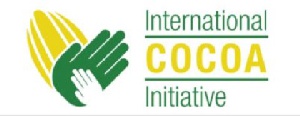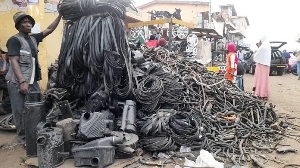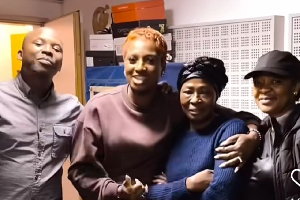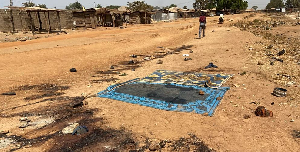The International Cocoa Initiative (ICI) is training journalists on issues of Child Labour, especially in the cocoa industry. The aim is to enable them play their roles effectively towards eliminating the menace for all Ghanaian children to develop into healthy, productive adults.
ICI is a Non-Governmental Organisation (NGO) committed to the elimination of child labour in the cocoa industry through working with stakeholders for community engagements, community action plans, mediation and pro-poor interventions.
The three-day workshop at Assin Fosu, which is one of its corporate strategies, is, therefore, aimed at broadening the scope of the journalists from the Greater Accra and Central regions, also also link them up key stakeholders from some communities to hear their success stories.
The journalists are expected to follow up their training with field trips that would give first-hand information to make recommendations for the relevant interventions by governmental and non-governmental actors in the best interests of the affected children.
Addressing the participants at the opening of the workshop, Mr Prince Gyamfi, the Deputy National Coordinator of ICI, said it was important for all stakeholders to work in concert to ensure that all of Ghana’s children were given the opportunity and the support to develop into healthy, confident, productive and responsible adults for national development.
He said though Ghana had a comprehensive legal framework for addressing Child Labour, the enforcement was weak and uncoordinated, with the Children’s Act, (Act 560) not being fully operational.
Besides, institutions charged with child protection, the enforcement of laws were poorly equipped to effectively carry out their roles at the district and community levels, while the general knowledge on the issues were limited, he stated.
He described the situation as a ‘major drawback to national development’.
The participants were therefore being enlightened on the concepts of Child Development, Child Work and Child Labour, Causes and Consequences of Child Labour, Worst Forms of Child Labour, Hazardous Work and the efforts being made by Government and other stakeholders to achieve positive transformation.
Mr Gyamfi defined child labour as ‘any work that deprives children of their childhood, their potential, their dignity and undermines their physical and psychological development’.
He said worst Forms of Child Labour include, Child Trafficking, Commercial Sex, Exploitation of Children, Child Domestic Servitude, Carrying of Heavy Loads and Street Hawking, which should never be condoned.
He, therefore, asked for support for the Ghana Child Labour Monitoring System, which is responsible for identifying child labourers. It also determines the risks they are exposed to, and refer them to the appropriate rehabilitation services to be effective.
According to the latest edition of the Ghana Living Standards Survey, 1.9 children in Ghana are engaged in Child Labour; with 1.2 in Hazardous Labour.
Worldwide, reports say 101 million children are engaged in Child Labour in Agriculture alone, with 35 million in Africa and 2.1 being in Ghana and Cote d’Ivoire.
General News of Wednesday, 18 October 2017
Source: ghananewsagency.org













